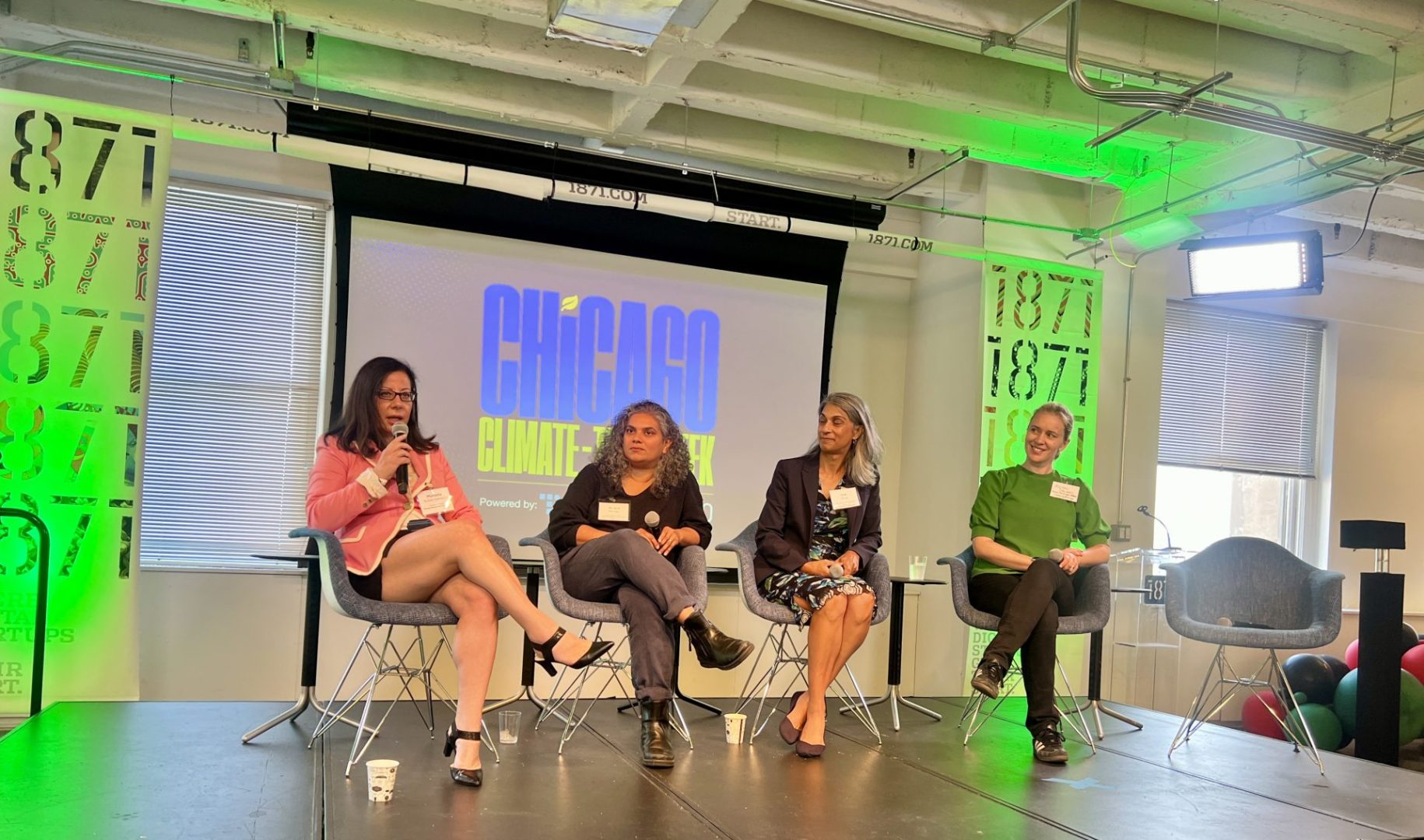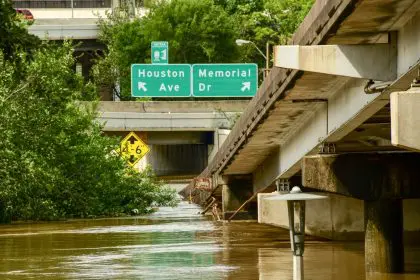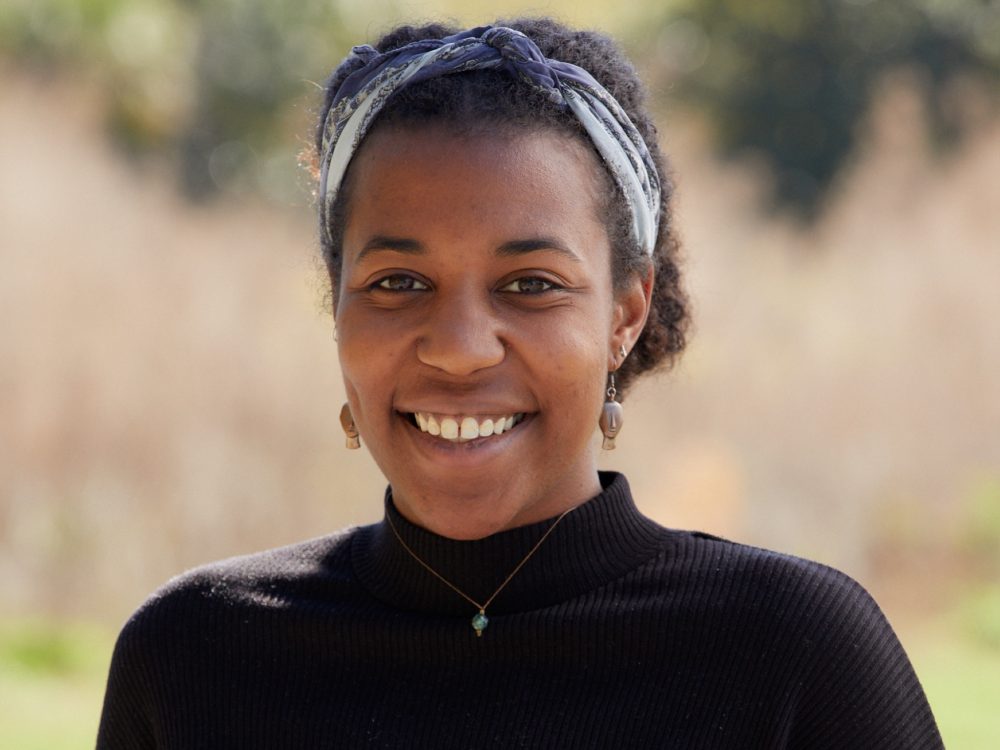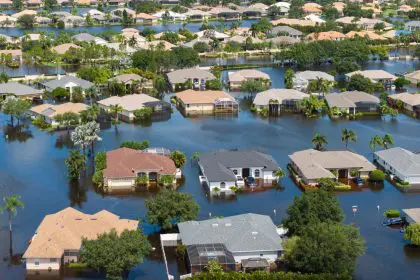On Sept. 18, Chicago Climate-Tech Week presented “Resilient Futures & Tech Horizons” at 1871 located on the 12th floor of the Merchandise Mart. The day began with the panel discussion “Engineering Better Future For Human Resiliency.” It was moderated by Michelle Burbea Hoffman, executive director of the Chicago Biomedical Consortium. The panelists were Dr. Arti Barnes, chief medical officer, Illinois Department of Public Health; Lisa Dhar, associate vice president for Innovation, Northwestern University; and Allison Squires, Neubauer Family assistant professor of Molecular Engineering, the University of Chicago.
Resilience as it pertains to various economic groups shows up in dramatically different ways. When it comes to those who have resources able to withstand a flood, a tornado, or some other major disaster, although it may be difficult, they can navigate easier than people in marginalized communities. As climate change continues to affect the world, many aspects of maintaining this ever-changing landscape are being studied. Being prepared and having the proper resources was addressed by Barnes.
“When it comes to specifically climate change resiliency, traditional human evolution has been the testimony of human resiliency right? There’s a reason my skin doesn’t make vitamin D as efficiently as others. So moving forward through right now, it has almost translated into economic resiliency where well-resourced countries, well-resourced communities, where resourced individuals can be protected and prepared from extreme climate change and potential weather disasters and the changing ecology of our environment much better than people who don’t have those resources. From a public health standpoint, for me, working towards resilience means working towards making sure the most vulnerable also have at least a fighting chance to withstand all the shocks of what we have coming towards us,” said Barnes at the event.
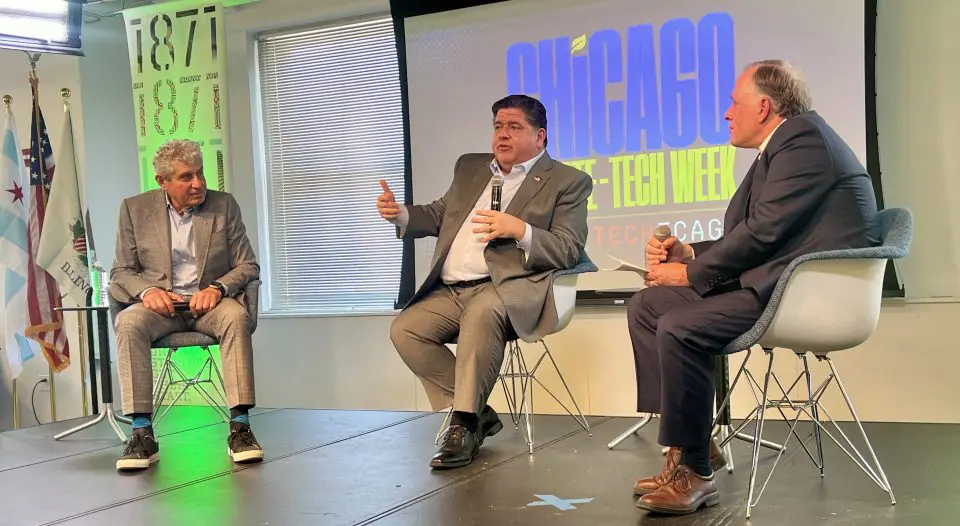
A Fireside Chat with Illinois Governor JB Pritzker and Mike Polsky, CEO of Invenergy, moderated by John Pletz, reporter, Crain’s Chicago Business, focused on leadership and innovation in the energy sector and the problems facing entrepreneurship in the private sector came up.
“So some of this problem is that the government needs to get out of the way. Some of this problem is that the government needs to be an encourager and an incentivizer. We need to be a planner, for sure, and then we need to figure out how we incentivize entrepreneurs, the development of the tech and the use of the technology. We should be incentivizing until the industry is mature enough to manage itself and be able to be profit-generating on its own,” Pritzker said.
Climate change continues to take center stage as natural disasters have increased in frequency, intensity, and cost. Events like Chicago Climate Tech Week bring some of the greatest minds together to discuss solutions that benefit everyone.
Chicago Climate-Tech Week takes place Sept. 16-20 at various locations across the city. The second annual Chicago Climate-Tech Week was created to showcase clean energy and sustainable innovations via electric cars, solar energy, ethanol jet fuel, regenerative agriculture and more. Three thousand people are expected to attend the five-day event.

